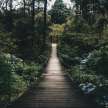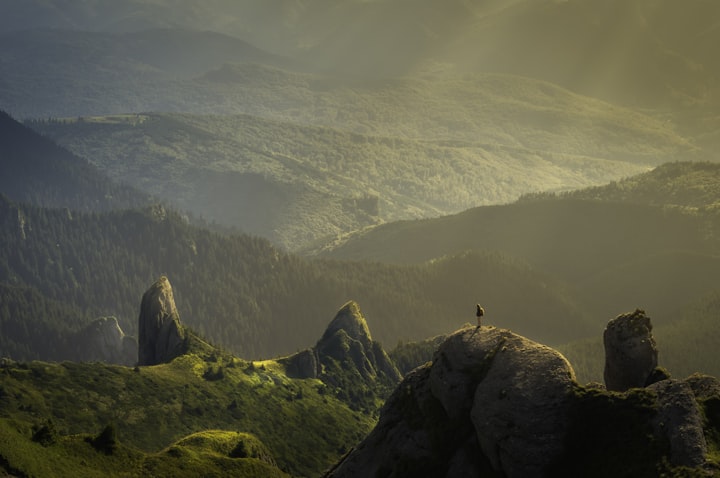What is Nature Writing?
Definition and Examples

Nature writing is a form of creative nonfiction in which the natural environment (or a narrator's encounter with the natural environment) serves as the dominant subject.
"In critical practice," says Michael P. Branch, "the term 'nature writing' has usually been reserved for a brand of nature representation that is deemed literary, written in the speculative personal voice, and presented in the form of the nonfiction essay. Such nature writing is frequently pastoral or romantic in its philosophical assumptions, tends to be modern or even ecological in its sensibility, and is often in service to an explicit or implicit preservationist agenda" ("Before Nature Writing," in Beyond Nature Writing: Expanding the Boundaries of Ecocriticism, ed. by K. Armbruster and K.R. Wallace, 2001).
Examples of Nature Writing:
- At the Turn of the Year, by William Sharp
- The Battle of the Ants, by Henry David Thoreau
- Hours of Spring, by Richard Jefferies
- The House-Martin, by Gilbert White
- In Mammoth Cave, by John Burroughs
- An Island Garden, by Celia Thaxter
- January in the Sussex Woods, by Richard Jefferies
- The Land of Little Rain, by Mary Austin
- Migration, by Barry Lopez
- The Passenger Pigeon, by John James Audubon
- Rural Hours, by Susan Fenimore Cooper
- Where I Lived, and What I Lived For, by Henry David Thoreau
Observations:
"Gilbert White established the pastoral dimension of nature writing in the late 18th century and remains the patron saint of English nature writing. Henry David Thoreau was an equally crucial figure in mid-19th century America . . ..
"The second half of the 19th century saw the origins of what we today call the environmental movement. Two of its most influential American voices were John Muir and John Burroughs, literary sons of Thoreau, though hardly twins. . . .
"In the early 20th century the activist voice and prophetic anger of nature writers who saw, in Muir's words, that 'the money changers were in the temple' continued to grow. Building upon the principles of scientific ecology that were being developed in the 1930s and 1940s, Rachel Carson and Aldo Leopold sought to create a literature in which appreciation of nature's wholeness would lead to ethical principles and social programs.
"Today, nature writing in America flourishes as never before. Nonfiction may well be the most vital form of current American literature, and a notable proportion of the best writers of nonfiction practice nature writing."
(J. Elder and R. Finch, Introduction, The Norton Book of Nature Writing. Norton, 2002)
"Human Writing . . . in Nature"
"By cordoning nature off as something separate from ourselves and by writing about it that way, we kill both the genre and a part of ourselves. The best writing in this genre is not really 'nature writing' anyway but human writing that just happens to take place in nature. And the reason we are still talking about [Thoreau's] Walden 150 years later is as much for the personal story as the pastoral one: a single human being, wrestling mightily with himself, trying to figure out how best to live during his brief time on earth, and, not least of all, a human being who has the nerve, talent, and raw ambition to put that wrestling match on display on the printed page. The human spilling over into the wild, the wild informing the human; the two always intermingling. There's something to celebrate." (David Gessner, "Sick of Nature." The Boston Globe, Aug. 1, 2004)
Confessions of a Nature Writer
"I do not believe that the solution to the world's ills is a return to some previous age of mankind. But I do doubt that any solution is possible unless we think of ourselves in the context of living nature
"Perhaps that suggests an answer to the question what a 'nature writer' is. He is not a sentimentalist who says that 'nature never did betray the heart that loved her.' Neither is he simply a scientist classifying animals or reporting on the behavior of birds just because certain facts can be ascertained. He is a writer whose subject is the natural context of human life, a man who tries to communicate his observations and his thoughts in the presence of nature as part of his attempt to make himself more aware of that context. 'Nature writing' is nothing really new. It has always existed in literature. But it has tended in the course of the last century to become specialized partly because so much writing that is not specifically 'nature writing' does not present the natural context at all; because so many novels and so many treatises describe man as an economic unit, a political unit, or as a member of some social class but not as a living creature surrounded by other living things."
(Joseph Wood Krutch, "Some Unsentimental Confessions of a Nature Writer." New York Herald Tribune Book Review, 1952)
What is nature writing?
What we talk about when we talk about nature writing.
“Nature writing can be defined as non-fiction or fiction prose or poetry about the natural environment.” This is actually its definition on Wikipedia.
For the purposes of this prize, we're accepting only non-fiction prose submissions (see last week's resources on breaking down the brief), but in general, nature writing can mean many more things and cover lots of different ideas. As such, there’s a whole variety of approaches to writing a book in this genre. Different types of nature writing books can include: factual books such as field guides, natural history told through essays, poetry about the natural world, literary memoir and personal reflections.
Typically, nature writing is writing about the natural environment. Your book might take a look at the natural world and examine what it means to you or what you’ve encountered in the environment. You could frame this idea through a personal lens.
Perhaps you want to take a more focused or factual approach and look at individual flora and fauna in detail. Recent books that we’ve enjoyed have looked at topics such as beekeeping, owls, social and cultural history, trees, swimming, cows and have offered personal observation and reflection on their chosen topics.
You might be writing about the landscape, from farming to remote islands or city life. You may want to write about the fauna and flora of a whole region, or just one animal or a single tree. You don’t need to go out into the wilderness to write about nature and you don’t need to be hiking for three months in a remote area either. Most importantly, we believe the best books on nature writing convey a clear sense of place and mainly focus on the natural world and our human relationship with it.
The Nan Shepherd Prize aims to find the next big voice in nature writing from emerging writers, and we can’t wait to read about what nature means to you.
- Read an academic paper on New Nature Writing here.
- ‘Land Lines’ was a two-year project funded by the Arts and Humanities Research Council, and is a collaboration between researchers at the Universities of Leeds, Sussex and St Andrews. The project carried out a sustained study on modern British nature writing, beginning in 1789 with Gilbert White’s seminal study, The Natural History of Selborne, and ending in 2014 with Helen Macdonald’s prize-winning memoir, H is for Hawk. You can look at their website here.
- Read about nature writing throughout history (this is a US perspective) here.
- Read about which nature books have inspired today’s contemporary nature writers here.
Read this guide to nature writing from Sharmaine Lovegrove, publisher of Dialogue Books, who teamed up with the Forestry Commission to find undiscovered nature writers here.
Over @NanPrize we’ve been sharing examples of our favourite nature writing books, so if you want to see some specific examples of recent favourites, that might be a good place to start. We’ve also got a collection here https://canongate.co.uk/collections/nature-writing which will give you an idea as to what books we like to publish in the nature writing genre.
About the Creator
Amazing_nature
nature is best gift in tha world






Comments (1)
Nature is our homeland so it is an interesting article... Really good work! I have an article about sustainability on my profile now, I hope you would take a look.